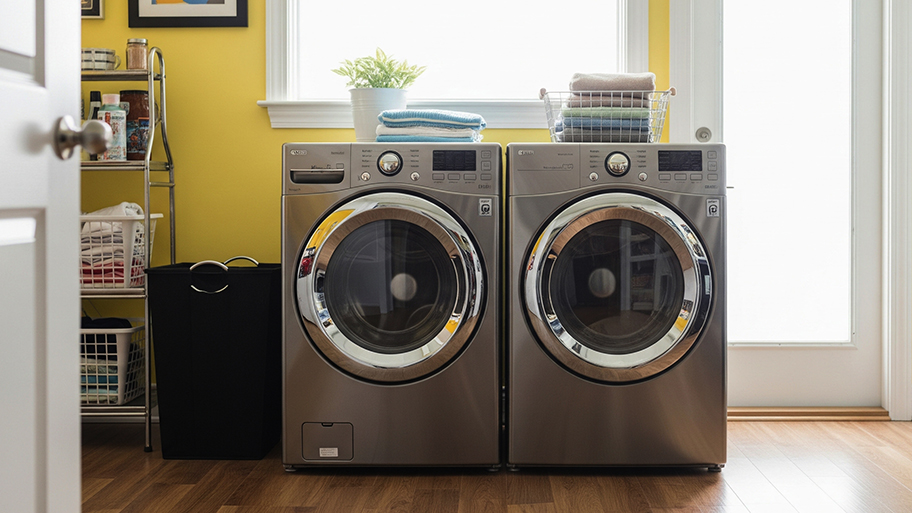
Looking to keep warm this winter without the high utility bills? Use this pellet stove installation cost guide to see what a natural heating solution will cost.
Follow these tips and never have a dishwasher break down again


Dishwashers make life just that much easier—after all, dishwashers save you money, water, and time. But your dishwashing habits might actually be hurting your machine without you even knowing.
To make sure your dishwasher lives a long and happy life, follow these guidelines.
It’s so tempting to fit as much as you can into your machine, but forcing something to fit is a bad idea. By overloading the dishwasher, you're preventing water and soap from moving through the unit the way they should. That’s hard on your dishwasher, and too gentle on your dishes.
An overloaded machine can also cause water to splash out of the unit, causing leaks at the base. Instead, break those gigantic loads into two or three separate cycles.
Yes, dishwashers are amazing and helpful. Yes, they save us a lot of time. But no, they do not replace humans for every single step of the cleaning process.
If you don’t scrape and rinse your dishes before putting them into the dishwasher, the food you’ve left behind gets into the pump screens and washer arms. When food gets trapped, clogs form, leading to various problems: Your dishwasher will no longer drain, or your washer arms won’t eject the water required to effectively clean your dishes.
You don’t need to use soap, but you must rinse your dishes of major debris before putting them into your machine.

If you use liquid dishwasher detergent, make sure you’re not overfilling. Overfilling puts more stress on the dishwasher, and too much soap can lead to filmy buildup on your dishes.
Make sure you never place liquid dish soap inside of your dishwasher—it isn’t designed to work outside of the little detergent compartment, and the suds it creates can also damage your unit’s mechanics. To find out what soap best works for your dishwasher, check your service manual.
While running a cycle in your dishwasher for just one coffee cup is silly, using the machine regularly is good practice. The longer you let it sit unused, the more buildup of food debris and moisture is happening inside—and then you’ll need to deep clean.
Clean your dishwasher at least once every three to six months. To clean your machine, put two cups of white vinegar in a dishwasher-safe cup or mug on the top rack and run a complete cycle. Then, toss some baking soda (about one-fourth cup) onto the bottom of your dishwasher and run a short cycle to get rid of any lingering smells.
Don’t forget to also regularly clean your garbage disposal at the same time. These units often share plumbing elements, and you don’t want all your dishwasher cleaning to be for naught because you’ve neglected to clean your garbage disposal.
If something does go wrong and you need to call a local dishwasher repair pro, you can expect to pay about $230. Repairs, depending on the issue, can be as nominally priced as $50 but can also run as high as $600. That’s why taking care of your dishwasher is so essential!
From average costs to expert advice, get all the answers you need to get your job done.

Looking to keep warm this winter without the high utility bills? Use this pellet stove installation cost guide to see what a natural heating solution will cost.

A wood stove can add warmth and ambiance to your home, but is it in your budget? Discover average wood-burning stove installation costs in this guide.

Dryer repair costs as little as $10, but sometimes, replacing your dryer is more cost-effective. But if you have to make repairs, here’s how much it’ll cost.

Does your washer sound like it wants to leave your house? You can fix this issue in just a few minutes. Keep reading to learn how to balance a washing machine.

Wondering who to call to hook up a gas dryer? Call a licensed plumber or contractor to hook up your gas dryer and make sure it's venting properly.

There are many different sizes of dishwashers, and which one you choose will depend on whether you want a standard dishwasher size or a custom fit.